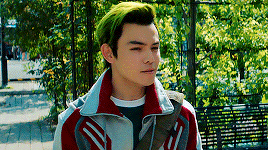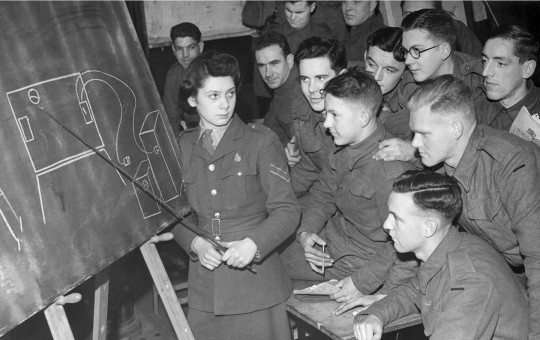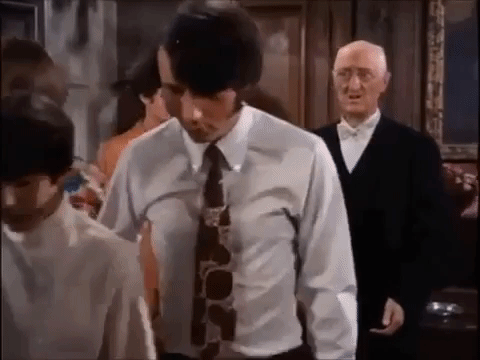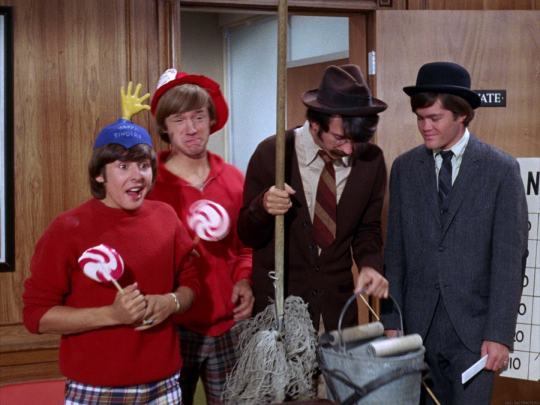#buddy guy and man when you say them in a hippy voice are all gender neutral to me thats just facts
Text

🌄💐💇♂️ claude hooper full biography - tw for drug use and war mention
Full Name: Claude James Hooper
Age: 25
Gender: Cis Male, he/him
Face Claim: Ryan Potter
Personality: Free-Spirited, Conflicted, Thoughtful, Hopeful, Soft
Profession: Political Cartoonist
As a child, the adventurous Claude always felt he aired on the side of invisible, in family, at school, with his friends. Practically everywhere, he was Mr. Cellophane, able to have people walk right past him for all the emptiness he felt inside. Moreover, Claude was always a pensive kid, speaking generally when he thought he had something important to say. As if the only way to express himself was saying whatever he wanted, not what others (especially his strict, traditional parents) wanted to hear. Though raised in a Jewish home, he was always awfully questioning of any strict beliefs his parents held; religious, moral, or otherwise. Claude was well aware from a young age: mom and dad would always be so uptight, but why? Did it make them happy? No, they had little to give their boy, who’d always feel empty and disconnected from them anyways. They were somewhat well-off, Claude was the only child of a middle class family. Shouldn’t he be happy with the life planned in front of him? More and more as he grew, Claude was certain the answer to this question was a resounding NO. He was empty at home. There had to be something out there, something worth fighting for, something worth creating. With a curious mind and parents who didn’t understand him, Claude turned to his “doodles” early in middle school. These things his family had once called “silly” turned out to be just that - silly enough to get people to laugh. And just maybe get them to pay attention to the things he had to say for once. Though Claude wasn’t the funniest guy around, his cartoons were surely a way to get his voice out. into the world in a way his stifling home and school life couldn’t give him.
As a teen, Claude adapted to the hippie (read: stoner) crowd at school. They didn’t urge him to be anything he wasn’t and they didn’t put pressures on him to get better grades and a minimum wage, dead end job like his parents - and they could score him weed. Smoking a little bit every now and then loosened the reigns in Claude’s mind that kept him tied down to earth. When high, Claude was able to see everything he wanted to be in the world, light and free, so he started smoking more, eventually growing marijuana himself. While in the hippie crowd, the ideals of unconditional, agape love appealed to him wholeheartedly, and Claude couldn’t imagine anything more noble than working towards a world full of peace and tranquility! Even with his parents urging him to get a job and become yet another blue collar worker, what could be wrong with love, with peace, with filling that emptiness inside? Quite a bit, apparently, as Claude still couldn’t seem to fill that hole in his heart, that hole that longed for a purpose, a reason to life. This pained struggle was one that followed him all through adolescence; with words from his parents ringing in his ears and wondering if the hippie life was everything it preached it would be. Timothy Leary had once suggested that dropping out of school and getting in tune with your soul was the only way to be happy in life. Well, Claude was graduated finally... Why wasn’t he happy now? It seemed the ideals of doing whatever ‘feels good’ for yourself weren’t all they were cracked up to be, and Claude could see people getting hurt by those selfish ways. Like many people coming of age during the Iraq and Pakistan wars, Claude was torn here with the struggle of wanting to love and support your country, while not agreeing with everything it is doing. He felt invisible, and it all came to a head here. Talked over, an irritation, a small blip in the map of life.
So, maybe the meaning of life was to defend the ideals you believed in. Taking the best of his parents’ and his friends’ wisdom, and none of the shortcomings he’d seen from any of them (he had enough of those himself), Claude seemingly disappeared from his friend group, cementing his invisibility permanently. He’d actually joined the army, finally caving into the urging from his country to become one of many conformists, marching along to The Man. Perhaps he’d hoped fighting for the right cause would make him feel whole again - but to feel whole again, doesn’t one have to know what it feels like to be whole to begin with? This lesson in consequence and decision failed to fill the hole in his heart twofold, and left Claude feeling ashamed of all he’d left home for. All he wanted to do in life was to fill other people’s hearts with good, to create something good - he wished for no one to ever feel the way he’d felt every day of his life. He spent a little over 3 years in the army, stationed in Iraq with almost no contact back home. Sure, he made a few buddies while in the troops, but he made even more nightmarish memories, ones that haunt him to this day. The horrors of the Iraq war were not something Claude was prepared for, and visions of fires, screaming, and the knowledge that what he’s done (or, what he’s been complicit to) has resulted in innocent deaths plagued the young man’s thoughts. In that time, Claude knew this was not the ”good fight” the American government had claimed it was, and he wouldn’t be an accomplice to it any more. Luckily (or, not-so lucky) for him, on their next raid, one of Claude’s comrades accidentally discharged their weapon, shooting Claude in the foot and sending him into the hospital to have a Chopart amputation (right above the arch).
Having received his honorable discharge after those 3 years, he returned to his hometown nearly unrecognizable to his friends, long hair cut and a distinct limp on his left side. Without the military, however, Claude felt freer than ever, yet also more weighed down by all the things he had seen. He hadn’t exactly been raised in a home that gave much attention to mental health, so Claude was helpless to deal with all the guilt that raged in him nightly. The young man revisited the only things that had ever brought him closer to peace- First, drugs. The list of drugs Claude has used is lengthy and depressing. It’s best not to think about it. A more pleasant thought, however, is of the other things that had brought him peace at a young age - his drawings. Now living in his home town, but with no connections, Claude had more than enough time to draw as much as he wanted, so he poured his heart and soul into his art. His heart and soul were, for lack of a better term, a bit damaged now (or maybe they had always been), but his steadfast beliefs on the government, war, media consumption, and the dichotomy of good and evil gave him some excellent material to draw about. He would no longer be an accomplice to the horrors of the world, and maybe his work could shed light on these hard realities of politics and news of the 21st century.
Claude’s cartoons quickly caught attention on the internet, and although it came as huge surprise to him, his name was all of a sudden getting recognized places. The South London Press contacted him less than a year later, offering him a key spot in the Sunday post, and short strips on the weekdays. Always one to follow his heart when making important decisions (hopefully this one would take him to a better place than his last big decision had), Claude took the job in a heartbeat and flew off to London, excited to have a purpose and something to fight for again. Much like the last time he’d shipped off though, Claude’s friends were none the wiser about it. Not that they’d reconnected much with him when he’d gotten back from Iraq anyways, but Claude felt it was bittersweet to know that he was quite literally leaving nothing behind him. Everything in his life was ahead of him. After his comic strips began gaining traction and attention in the newspapers, Claude’s name and signature became fairly recognizable - to those who still read paper newspapers, that is. He’s just fine with that however, having been well-accustomed to this life of being invisible. While his name might be known, his face is still just another in a crowd. It’s his words and his messages that are reaching people now and with all this change to his life, Claude likes to think that he’s making good.
3 notes
·
View notes
Text
Long-haired weirdos on American TV
Buckle up kiddos; here we fucking go. Alright. In The Monkee fandom this is something we hear a lot about. “The Monkees” was so groundbreaking! It brought rock-n-roll music into America’s living room! It made the counter-culture acceptable! They were the first show to not have an authority figure! They were the first show to present long-haired young musicians as the good guys! And so on and so forth, ad nauseum. We hear this so much, I think it starts to lose its impact, not to mention the fact that for those of us who are not first gen fans (increasingly the majority of us) we lack the cultural context to understand just how significant this show actually was. So without further ado, here are some points to consider.
First, the hair. Looking back now, it seems laughable that in season 1 these guys: x

were considered to have “long hair”. But you have to understand. In the 40s, the US went to war. WWII was a “popular” war, which meant that if you were male you either were a soldier or you idolized soldiers. No homo. But as a result of this trend, military haircuts became popular. That meant short, practical hairstyles with clean-shaven faces. x

In the 50s, the US went back to war in Korea, and again in Vietnam which bled into the 60s. By that time, even though the US was not technically “at war” with anyone, the “young generation” was getting more and more fed up with being sent to fight and die for a cause they didn’t fully understand and were less and less sure they believed in. But in the early and mid 60s, soldiers and veterans were still heroes to the general public. So the growing opposition in the youth became a counter-culture movement, beginning as the beat generation and growing into the hippies.
These people rebelled against everything “mainstream”; they had sex before marriage, they had interracial sex, they had gay sex, they experimented with drugs, they bent gender lines, they wrote about all of the above and published it, they grew beards, and, wonder of wonders, they didn’t crop their hair.
So in the mid-60s, as a man, if you didn’t keep your hair short, it was public declaration that you rejected the values that America considered to be basic decency. If you let your hair grow, you were labeling yourself a deviant. That line that’s used a few times in the show? About men with long hair not being allowed into Disneyland? That wasn’t a joke, that actually happened.
And more than that, wearing your hair “long” as a man blurred the strict gender divide at the time. We see this a number of times in the show both scripted and not. In one of the post show interviews Davy tells a story about how he was mistaken for a woman on a trip to see his family, both by a fellow passenger and his sister. In another interview Davy is asked about being harassed for his hair. In “Monkees on Tour” Peter compare’s the length of his horse’s mane to his own hair and sarcastically asks if the horse is a “boy or girl”. In “Monkees Mind Their Manor” the man who comes to bring Davy to England mistakes Micky for a girl, and is nearly stabbed with a drumstick for his trouble. The butler in “The Christmas Show” tells the band they were expecting “four gentlemen” when they arrive. (Mike asks if they will accept four ladies who shave. They do.) And the only difference Mr. Babbitt seems to see between Mrs. Arcadian and Micky in “The Chaperone” is hair color.

Now we come to the music, if the hair wasn’t bad enough. Rock-n-roll became a hit the 50s with artists like Elvis and Buddy Holly. (I should point out, among white audiences. Classic rock, like many other popular music genres such as ragtime, jazz, and hip hop, began among black communities first before spreading elsewhere.)
Rock in the late 50s scandalized older generations. The rhythms were more staccato and less “refined” than the crooners they were used to. Classical instruments like brass or strings were set aside in favor of drums, guitars/basses, and small percussion instruments instead. Performers danced in jerky, abrupt movements on stage while singing, and Elvis in particular made headlines by thrusting his hips which brought sex to the forefront. The name itself, rock-n-roll, derived from a slang term for “the deed” which, disappointingly, makes “sex, drugs, and rock-n-roll” redundant. Adults railed against this new type of music, calling it deviant and unclean. Young people, on the other hand, loved it.
And this was a bit of a gray area. As I’ll get into later, the idea of “young adults” or teenagers was only just beginning to become a concept. There were two kinds of people in the world, children and adults. And adults wielded absolute authority over children. So no one really knew what to do with the people old enough to chafe against authority but young enough to not be respected as one.
But the adults couldn’t deny that fact that rock music was extremely popular with young people. Chubby Checker, Chuck Berry, Buddy Holly, Elvis, The Beatles, and the list was only growing. As a result, this “rock fad” became an in-joke, something for those in power to mock. Look at any popular sitcom in the 60s and I guarantee it has a “rock band” episode that depicts a Beatles-esque band with their bangs in their eyes playing a sham parody of “music” while wildly and completely un-rhythmically “dancing”.
In “F-Troop” it’s “That’s Show Biz”. In “Gilligan’s Island” it’s “Don’t Bug the Mosquitoes”. In “The Dick Van Dyke Show” it’s “The Redcoats are Coming”. Such groups were always met with confusion and derision, and usually shrugged off in the end as “well whatever, but it’s not ‘Real Music’”. These bands were put in as commentary on current, real-life counterparts (mostly The Beatles) and they were meant to be laughed at. x

In the show the boys are often met with derision or outright animosity in regards to their music. The pilot, “Here Come The Monkees”, has a father reluctant to let them play at a country club, and even breaks down crying that he’s “sold out” (to rock culture) when the boys go on at the end. In “Monkees at the Circus” the circus performers are angry in general at what they see as no talent entertainers taking away their lively hoods. And we see how well-received the boys are by the “style gurus” in “Monkees a la Mode”.
Now let’s see, so far we have hairstyles that label you as “deviant” and a music genre that does the same thing. What else could we possibly throw in? Ah yes. Let’s take away all adult authority figures! As I mentioned before, young people in the 60s were just starting to have a voice of their own. The world was divided into adults and children, and adults ruled with an iron fist. Children needed to be guided, taught, and above all else controlled lest they stray into poor decisions. And adults were the only ones who could possibly tell “right” from “wrong”.
But on “The Monkees” there was no authority. The boys were their own moral compass, though Mike came pretty close to acting as the “dad” most of the time. In fact most of the adults on the show are either villains or someone who need the boys’ help. And make no mistake, despite all of them being in their early 20s Peter, Mike, Micky, and Davy were playing boys. They are almost universally referred to as such by every adult figure in the show, and make several comments themselves about being “too young to get married” or the like. Their characters were most likely not meant to be older than 17 or 18. (I think one of them has a line somewhere about being 16 but I can’t pin it down.) x

And all of this is not even mentioning the fact that, besides being “musicians”, the guys are unemployed! Between gigs and odd jobs, they’re “bums” who can’t “get a real job” which was, and still is, Not A Good Thing. But ultimately their career choice is treated as a serious one in the show. Their music is never a joke, and a number of times they use it to help people.
So. Long story short. “The Monkees” took a staunchly counter-culture style, a “deviant” music genre, thumbed their noses at authority, combined it all together and mixed well with a type of sharp, witty comedy that would have gotten nasty looks at the country club. Then they took aim at teens and tweens across the country and struck gold. Turns out the young generation did have something of substance to say after all.
69 notes
·
View notes